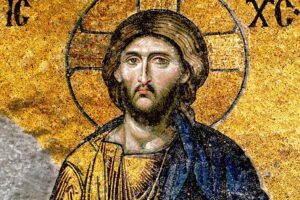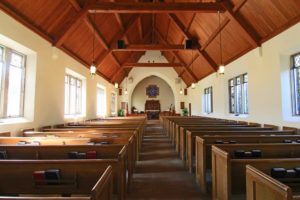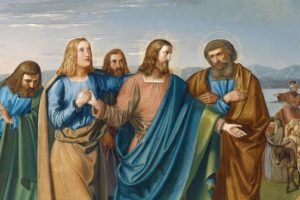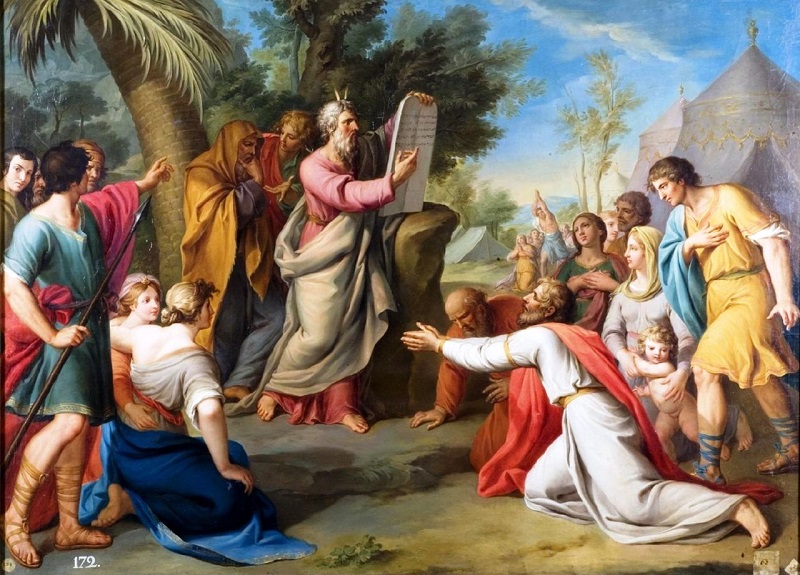The Bible’s Answer
Introduction
The Bible’s answer to this question is yes, the church is Israel. The chosen people of God have always consisted of both Jewish and Gentile believers united in their common faith in the true Messiah, whom the Bible reveals to be Jesus Christ.
Israel and the Church Defined
In this context, Israel refers to the chosen people of God in the Old Testament, the Israelites—Abraham’s offspring through Jacob’s family line, later known as the Jewish people or the Jews—with whom God had established a covenant relationship (Deuteronomy 7:6–8; Exodus 19:5–6; 1 Kings 8:52–53), and any foreigner who joined themselves to God’s covenant (Isaiah 56:1–8; Ruth 2:10–12). God promised them that he would one day send them a Messiah who would give them salvation (Genesis 22:17–18; Job 19:25–27; Isaiah 53), and the Israelites who abode in God’s covenant and believed in this promise were saved by the Messiah’s future provision (Psalm 103:8–13, 17–18; Psalm 130:7–8).
The church, in this context, is the chosen people of God in the New Testament and beyond, the body of Christ, which consists of all people who believe in Jesus as God’s Messiah of the Old Testament (1 Peter 2:4–10; Colossians 1:24–25; 1 Corinthians 12:27), and with whom God has established a new covenant relationship in Christ’s blood shed on the cross for the forgiveness of sins (Matthew 26:26–29; Hebrews 8:6–8, 13). The Lord Jesus’ provision on the cross saves and gives eternal life to all Christians (members of the church) who look back on his substitutionary death and resurrection and believe that through this Jesus has atoned for their sins, redeemed them, and reconciled them to God (Romans 4:23–25; Romans 5:1–2, 9–10; John 3:16; Titus 2:13–14).
The Church—a Continuation of Israel
Because of this, the church is neither a replacement of Israel (Supersessionism), nor a separate “chosen people” of God (Dispensationalism), but is rather a continuation of Israel. The main differences are:
- The people of God were called Israel in the Old Testament (1 Kings 8:30), but renamed to the church in the New Testament (Matthew 16:18) (though note that Paul calls the church “the Israel of God” in Galatians 6:15–16).
- Israel looked forward to and anticipated Christ’s coming and provision (Jeremiah 23:5–6), but the church looks back on and believes in Christ’s coming and provision retrospectively (1 Corinthians 15:3–4).
- Israel mostly consisted of Jews and had strong ties to the nation of Israel (John 4:20–23), which was where God’s temple was located (Ezra 6:5), but the church’s ministry extends all over the world, thus bringing in many more Gentiles (Acts 1:8), and now Christians are the temple of God (1 Corinthians 3:16) through the Holy Spirit (Ephesians 2:22).
- Israel was under the Old Covenant, in which it had to observe everything in the Law of Moses (Exodus 24:7–8), but the church is under the New Covenant, in which it is only obligated to follow the moral commandments of the Law of Moses, which are summed up by Jesus as love God and your neighbour (Hebrews 8:6–8, 13; Matthew 22:36–39), and in which circumcision is replaced with baptism (Colossians 2:11–12).
Abraham and Moses believed in Jesus before he came (John 5:45–47; John 8:56–59), just as the apostles Paul and Peter believed in Jesus after he came (who were also fellow Israelite/Jewish believers). It is also worth noting that both the Israelites of the Old Testament and Christians of the New Testament are called the saints (Psalm 85:8; Ephesians 2:19), which also emphasises the unity and continuity between Israel and the church. Both the Old and New Testament believers share the same faith: the Christian faith—not Judaism or Islam, both of which reject Jesus as the Messianic Saviour, and are thus false religions (though in the Old Testament, the true faith was not yet called Christianity).
God’s People United
As mentioned above, Christians who accept Dispensationalism make the mistake of dividing the people of God into two different and separate groups: the Jewish people, who make up Israel, and all people who believe in Jesus, which include some Jews but mostly Gentiles, who make up the church. The problem with this is that, according to the Bible, the Jews who reject Jesus have lost their status as being God’s chosen people. Paul teaches this through the metaphor of an olive tree and its branches.
The Gentiles are wild olive shoots, unconnected from the tree, whereas the Jews are the natural branches of the olive tree. Despite the fact that the Jews are the natural branches, God broke off from the tree each of the branches that rejected Jesus, and in their place he grafted in wild olive shoots that believe, the Gentiles, even though they were formally unconnected from the tree (Romans 11:11–24). Paul argues that God has not rejected his people by doing this, but, to the contrary, has been faithful to them by preserving a remnant of Jews who believe in Jesus by his grace alone (Romans 11:1–6).
This means, therefore, that the true chosen people of God are the Jews and Gentiles who have been united in the one olive tree (the church) through faith in Jesus Christ, whereas the Jews who reject him have been broken off—though they can certainly be grafted back in if they do not persist in their unbelief (Romans 11:23–24). This also corrects the mistake that some Christians make who believe in Supersessionism—that God has replaced Israel with the Church. As mentioned above, Paul says that the faithful Jews remained in the olive tree by God’s grace, while the Gentiles were grafted in later by God to be with them, which shows a continuance of Israel with new additions, rather than a replacement.
Paul further confirms all of the above in the previous chapters of the Book of Romans, testifying that being one of God’s chosen people has nothing to do with race or ethnicity:
But it is not as though the word of God has failed. For not all who are descended from Israel belong to Israel, 7 and not all are children of Abraham because they are his offspring, but “Through Isaac shall your offspring be named.” 8 This means that it is not the children of the flesh who are the children of God, but the children of the promise are counted as offspring. (Romans 9:6–8) (See also: Romans 2:28–29)
The true offspring of Abraham, hence chosen people of God, says Paul, are those who have been baptised into Jesus Christ and believe in him as the Messiah:
But now that faith has come, we are no longer under a guardian, for in Christ Jesus you are all sons of God, through faith. For as many of you as were baptized into Christ have put on Christ. There is neither Jew nor Greek, there is neither slave nor free, there is no male and female, for you are all one in Christ Jesus. And if you are Christ’s, then you are Abraham’s offspring, heirs according to promise. (Galatians 3:25–29)
Conclusion
In conclusion, the church is Israel. Israel is the people of God in the Old Testament and the church is the people of God in the New Testament and beyond. The church does not replace Israel, but is rather a continuation of it. The chosen people of God have always consisted of both Jewish and Gentile believers united in their common faith in the Messiah, which the New Testament reveals to be Jesus Christ, and continues to do so to this day. Being one of God’s chosen people has nothing to do with race or ethnicity; it depends on faith alone in Jesus Christ alone, by God’s grace alone.







